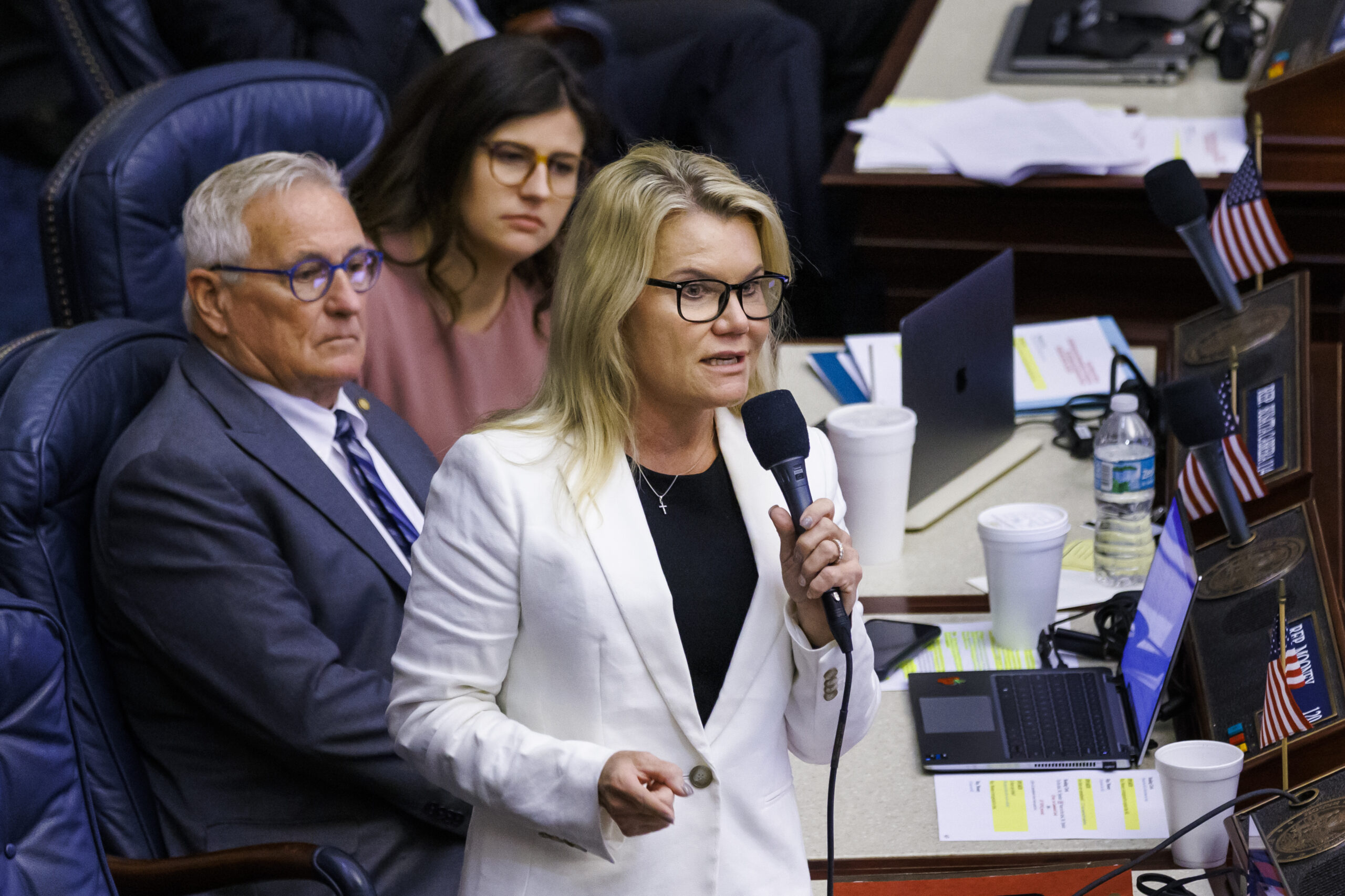A bill that would give innocent parents a much-needed way to disprove false child abuse claims is heading to the Senate floor after clearing its last committee hurdle.
Members of the Senate Rules Committee voted unanimously for SB 304, which among other things would enable parents whose children are removed from their custody on suspicion of physical abuse to request additional medical examinations — at their expense — in certain cases.
The bill is called “Patterson’s Law” after Michael and Tasha Patterson and their twin sons, whom the Department of Children and Families (DCF) took custody of in 2022 after broken bones the boys suffered raised alarms during an emergency room visit.
The couple took their matter to court, citing medical evidence showing that like their mother, the boys — who have still not been returned — have a rare genetic disorder called Ehlers-Danlos syndrome that causes fragile bones and easy bruising.
The Pattersons’ story is not an isolated incident. One Facebook group for families “who have been impacted by the medical misdiagnosis of child abuse” called Parents Behind The Pinwheels has 9,200 likes and 16,000 followers.
“The goal of this legislation is to protect vulnerable children, give parents a right to a qualified medical opinion for their children and reunify families who would otherwise be wrongfully separated,” said Broward County Democratic Sen. Barbara Sharief, a doctor of nursing practice who presented the bill.
Sharief said various preexisting genetic conditions like Ehlers-Danlos syndrome, rickets, osteogenesis imperfecta and vitamin D deficiency can lead to signs of bodily harm that aren’t due to physical abuse, but the state’s process for determining whether that’s the case is faulty, and it’s hurting families.
Today, she said, when there is a report of physical abuse, DCF conducts a visit and if visible bodily harm is observed, the child is immediately removed from the parent for their safety. A 24-hour shelter follows, after which a temporary protective supervision process begins, lasting up to 21 days until a determination is made.
But genetic testing critical to identifying preexisting conditions can take upward of six months to process, and in many cases siblings must also undergo testing that further delays reunification.
“The issue is that child protective investigators who may not be familiar with these diseases often make initial determinations of abuse based solely on physical findings — injuries such as broken ribs, bowed limbs (and) dislocated joints, which are characteristic of certain medical conditions — (that) can be misdiagnosed as a sign of physical abuse,” Sharief said.
“This bill will ask that a qualified physician or medical professional gives an opinion to determine whether (the child’s injuries are) consistent with an underlying medical condition or with child abuse. Currently, parents do not have enough time to identify or submit a second opinion (from a qualified physician or medical professional to challenge an abuse determination, (and) families are wrongfully separated.”
SB 304 and its House analog (HB 511) aim to fix that. It would give DCF more time to forward allegations of criminal conduct to a law enforcement agency if a parent alleges the existence of certain preexisting medical conditions or has requested an examination.
The bill, effective July 1, would require child protective investigators to remind parents at the beginning of an investigation that they have a duty to report their child’s preexisting conditions and provide supporting records in a timely manner. It would also mandate that child protective teams consult with a licensed physician or advanced practice registered nurse with relevant experience in such cases.
Boynton Beach Democratic Sen. Lori Berman commended Sharief for filing SB 304 and noted that numerous parents who had been affected by the issue had spoken in favor of the legislation at the bill’s prior committee stop.
“It was so emotional and moving and gut-wrenching because a lot of them have still not even been reunited with their children,” said Berman, who in 2023 passed Greyson’s Law to better safeguard children at risk of parental harm. “This is a really necessary bill.”
The Florida Smart Justice Alliance and Florida Justice Association signaled support for SB 304, which pends scheduling for Senate floor consideration.
HB 511, sponsored by Weston Democratic Rep. Robin Bartleman and Shalimar Republican Rep. Patt Maney awaits a hearing before the second of two committees to which it was referred.
Post Views: 0

 Entertainment8 years ago
Entertainment8 years ago
 Politics8 years ago
Politics8 years ago
 Entertainment8 years ago
Entertainment8 years ago
 Entertainment8 years ago
Entertainment8 years ago
 Tech8 years ago
Tech8 years ago
 Tech8 years ago
Tech8 years ago
 Tech8 years ago
Tech8 years ago
 Politics8 years ago
Politics8 years ago









